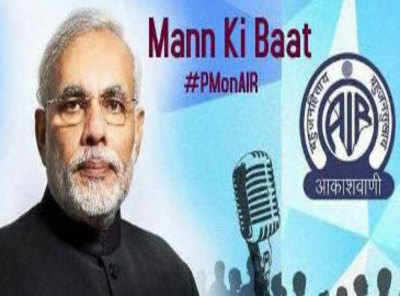


After a three-month hiatus due to the Model Code of Conduct for the election, Prime Minister Narendra Modi brought back his popular radio show, Mann Ki Baat. In its 111th episode, he highlighted the unique and diverse contributions of communities in India, from Kerala's Karthumbi umbrellas to Andhra Pradesh's Araku coffee to Kashmir's snow peas. He also congratulated the 65 crore voters and everyone involved in the successful execution of the world's largest election. Here are 10 things he spoke about in the episode.
Araku Coffee: A Culinary Delight from the Eastern Ghats
Araku coffee, hailing from the Eastern Ghats of Andhra Pradesh, has garnered national and international recognition for its distinctive flavor profile and ethical production practices. Prime Minister Narendra Modi recently highlighted the significance of this unique coffee variety during his "Mann Ki Baat" radio address.
Background:
The Araku Valley, located in Visakhapatnam district, is home to over 15,000 tribal farmers who have been cultivating coffee for generations. The region's high altitude, abundant rainfall, and fertile soil create ideal conditions for growing premium-quality coffee beans.
In the early 2000s, the farmers of Araku faced significant challenges due to low prices and exploitation by middlemen. To address these issues, the Naandi Foundation, a non-profit organization, partnered with the tribal farmers to establish the Araku Coffee Cooperative.
Unique Characteristics:
Araku coffee is renowned for its smooth and balanced flavor, with notes of chocolate, caramel, and citrus. It is grown using organic and sustainable practices, ensuring minimal environmental impact and fair compensation for the farmers.
The coffee is grown under the shade of forest trees, which provides habitat for a diverse array of wildlife and helps to preserve the local ecosystem. The farmers also practice agroforestry techniques, which involve planting a variety of other crops alongside the coffee plants.
Economic Impact:
The Araku Coffee Cooperative has significantly improved the economic well-being of the tribal farmers in the region. The cooperative has provided them with training, infrastructure, and access to markets, allowing them to earn fair prices for their coffee.
The cooperative has also invested in community development initiatives, such as healthcare, education, and housing, which have benefited the entire Araku Valley.
Top 5 FAQs:
1. What makes Araku coffee unique?
Araku coffee is grown under shade trees in an organic and sustainable manner, resulting in a distinctive flavor profile and minimal environmental impact.
2. Who grows Araku coffee?
Araku coffee is grown by over 15,000 tribal farmers in the Araku Valley of Andhra Pradesh.
3. How is Araku coffee different from other coffees?
Araku coffee has a smoother and more balanced flavor than many other coffees, with notes of chocolate, caramel, and citrus. It is also grown using ethical and sustainable practices that support the local community and environment.
4. Where can I buy Araku coffee?
Araku coffee is available at various specialty coffee shops and online retailers. It can also be purchased directly from the Araku Coffee Cooperative website.
5. What is the significance of Araku coffee being mentioned in "Mann Ki Baat"?
Prime Minister Narendra Modi's mention of Araku coffee in his "Mann Ki Baat" address highlights the significance of the coffee's unique characteristics, its economic impact on the tribal farmers, and its contribution to the rich cultural diversity of India.

Kerala General Education Minister V Sivankutty has clarified that the state government agreed to join the Centre's PM SHRI scheme to prevent the loss of approximately ₹1,500 crore in central funds. He stated that the state will not compromise on its education policies and will continue to publish its own textbooks. With the agreement allowing either party to withdraw at any time, the minister asserted that Kerala has the right to approach the court if necessary. He added that funds from the scheme are also used to support autism centres and other projects in the state, making it crucial for the education department to take steps to prevent the loss of funds.

In the 127th episode of his monthly radio programme 'Mann Ki Baat', Prime Minister Narendra Modi emphasized the enduring significance of the national song 'Vande Mataram'. He urged all Indians to celebrate the 150th year of the song's composition and instill its message of patriotism and unity in the younger generations. Tracing its origins, PM Modi highlighted how the song reflects India's ancient wisdom and the powerful bond between "Ma Bharati" and her children. The programme, launched in 2014, aims to connect with various segments of Indian society and is now broadcast in multiple languages across the world.

During his monthly radio programme, PM Narendra Modi addressed various topics including the importance of Chhath festival in showcasing India's social unity, the recent success of Operation Sindoor by the armed forces, and the upcoming celebrations for Sardar Patel's birth anniversary and Birsa Munda's legacy. He also urged citizens to participate in the Run for Unity event on October 31 and highlighted the significance of 'Vande Mataram' in Indian culture.

JD Vance, the current US Vice President, publicly criticized Zohran Mamdani, a Democrat running for the position of New York City Mayor, for his recent comments about Islamophobia and 9/11. Vance argued that Mamdani's remarks failed to acknowledge the 3,000 individuals who lost their lives and those who were injured during the terrorist attack. Mamdani, who shared his aunt's experience of discrimination post-9/11, spoke at a mosque in the Bronx and highlighted the fear that many Muslims faced in the city.

In honor of World Polio Day, local restaurants in Minnesota are teaming up for the "End Polio Now" event to raise awareness and funds for polio eradication. From 7 a.m. to 7 p.m., residents are encouraged to dine at participating restaurants where volunteers will educate them on the impact of polio worldwide and how to help. The event's signature sponsor, Eagle Rock, along with other local restaurants, will donate proceeds to Rotary International, which uses funds to provide polio vaccines to children in vulnerable areas. This effort is crucial given that polio continues to be a problem in some parts of the world, even though it has been eliminated in the US since 1979.

In a tightly contested race for the Rajya Sabha seats in Jammu & Kashmir, the ruling NC alliance emerged victorious, securing three out of the four seats. The BJP, which held only 28 seats in the Assembly, had hoped for a win through cross-voting or support from smaller groups. However, the NC's dominant position in the 88-member Assembly reaffirmed voter trust in their post-Article 370 political stability. PDP President Mehbooba Mufti also congratulated the NC candidates and expressed hope that they will strongly represent the people of Jammu & Kashmir in Parliament.

Mayor Derek Slaughter has vetoed a recent city ordinance that limits the terms of elected officials, citing concerns about retroactivity and lack of language addressing current officials. This veto comes after the ordinance was adopted in a 6-0 vote by City Council, with the mayor absent. If legally challenged, the defense of this ordinance could result in unnecessary costs for taxpayers. The mayor's decision has sparked a response from council members, with attempts to reach them for comment.

Prime Minister Narendra Modi addressed his first election rally in Bihar and expressed confidence in winning the upcoming polls. He mocked the opposition INDIA bloc and praised the unity within NDA, highlighting leaders like Nitish Kumar, Chirag Paswan, Jitan Ram Manjhi, and Upendra Kushwaha. Modi also criticized the 'jungle raj' under RJD and Congress and highlighted Bihar's progress under Nitish Kumar's tenure. Despite the upcoming Chhath festival, the PM thanked the crowd for attending and described the recent GST rate revision as a 'festival of savings'.

The suspension of Praveen Kumar K P, a PDO serving in Sirwar taluk of Raichur district, for participating in an RSS rally has sparked controversy in Karnataka. BJP leaders have condemned the move and promised to fight it legally, claiming that the officer's right to participate in such events is protected by law. Meanwhile, the state's Rural Development Minister has written to the Chief Minister for a ban on RSS activities on government premises, further intensifying the issue.

In a heated verbal exchange, Maratha quota activist Manoj Jarange Patil accused NCP Minister Chhagan Bhujbal of attempting to create a rift between the OBC and Maratha communities for political gain. During a recent OBC rally in Beed, Bhujbal and Dhananjay Munde attacked Jarange, with Pankaja Munde, a BJP OBC leader, watching from the sidelines. Jarange also praised Chief Minister Devendra Fadnavis and Minister Pankaja Munde for staying away from the rally and emphasized the unity of the OBC community. Bhujbal, on the other hand, warned Jarange against challenging the community's rights and vowed to stand up against any attempts to divide them.